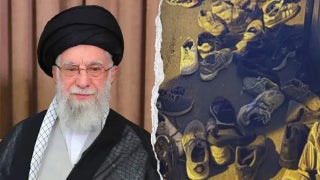BANGKOK – Rights groups are urging Thai authorities not to deport a Bahraini professional soccer player to his homeland, where he faces imprisonment for what his supporters say are political reasons.
The Bahrain Institute for Rights and Democracy says Hakeem Ali Mohamed Ali AlAraib was tortured after a 2012 arrest and fled in 2014 to Australia, which granted him political asylum last year. He had played for Bahrain's national soccer team and now plays for Melbourne's Pascoe Vale Football Club. He has been publicly critical of Bahrain's royal family's alleged involvement in sports scandals.
The London-based group says Hakeem was detained Tuesday at Bangkok's international airport on the basis of an Interpol notice issued at Bahrain's request that says he is sought because he was sentenced in absentia in 2014 to 10 years in prison for allegedly vandalizing a police station, a charge he denies. He says he was playing a match that was televised live when the alleged crime occurred, but when his family reached out to Bahrain's soccer association to confirm his alibi, their requests went unanswered.
Rights groups say Interpol's Red Notice — which is a request to locate and provisionally arrest an individual pending extradition — violates the international police organization's policy that the notices will not be issued "if the status of refugee or asylum-seeking has been confirmed."
A visa granted by the Australian government is supposed to allow Hakeem to remain in Australia indefinitely and to travel to and from Australia without having to travel to Bahrain, the country he has sought protection from.
"Hakeem is a refugee accepted by Australia, so Thailand should do the right thing by sending him back to Australia on the next flight," said Sunai Phasuk, Human Rights Watch's senior researcher for Thailand. "Under no circumstances should Thai immigration authorities hand him over to Bahrain, where he faces 10 years in prison on a politically motivated conviction and a repeat of the torture he experienced before he fled. Sending him back to Bahrain would be a heartless act that violates Thailand's obligations to protect refugees and will surely result in global condemnation."
No comment was immediately available from Thai or Australian officials.
Hakeem has said he was blindfolded and had his legs beaten while he was held in Bahrain. He said he believed he was targeted for arrest because of his Shiite faith and because his brother was politically active in Bahrain. Bahrain has a Shiite majority but is ruled by a Sunni monarchy.
According to the latest U.S. State Department's Country Report on Human Rights Practices, Bahrain's most significant human rights issues in 2017 "included reports of arbitrary or unlawful killings by security forces; allegations of torture of detainees and prisoners; harsh and potentially life-threatening conditions of detention; arbitrary arrest and detention; political prisoners; unlawful interference with privacy; restrictions on freedom of expression, including by the press and via the internet; restriction of academic and cultural events; restrictions on the rights of association and assembly; allegations of restrictions on freedom of movement, including arbitrary citizenship revocation;" as well as limits on Shiite political participation.
"Hakeem made brave interventions to expose the role of powerful members of the Bahraini royal family in sporting scandals," said Sayed Ahmed Alwadaei, director of the Bahrain Institute for Rights and Democracy. "Interpol has violated its obligations, as Hakeem holds refugee status and returning him to Bahrain puts him at significant risk of torture and imprisonment."
Australia's SBS News said Hakeem told them on Thursday that he fears being returned to Bahrain.
"It's very dangerous there (for me). ... In Bahrain, they want to kill me," he said. "I told (Thai Immigration) I (didn't) come from Bahrain, I have an Australian travel document ... Bahrain is not my country now, I live in Australia."
___
This story has been corrected to attribute information to the Bahrain Institute for Rights and Democracy.








































